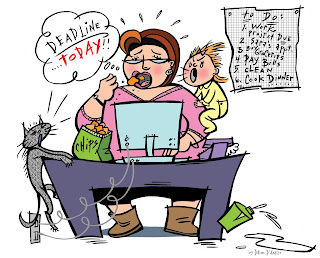Embracing happiness
"You see us
as you want to see us—in the simplest terms, in the most convenient
definitions. But what we found out is that each one of us is a brain...and an
athlete...and a basket case...a princess...and a criminal. Does that answer
your question?" (The Breakfast Club)
When I was 16 I was doing my A-levels. One of the courses I chose was sociology (I chose this course because it was not forced on me at GCSE, by way of protest and rebellion). This course had such an impact on me in ways I am only really starting to understand now.
During the course, I was repeatedly told that people from
broken homes and/or from working class families were destined to be criminals,
to create a broken home themselves in the future, and/or become mentally ill.
Being someone from a recently broken home and very much working class, I felt
that the world was setting the bar for me. That it was telling me I didn’t
deserve and shouldn’t expect anything more. And I think this idea was very much
a subconscious expectation that ingrained in to me and my future self.
Now this is not a pity party, but I think it all adds to
the complex tapestry of my emotional well-being. I notice now that anything
good that has happened to me in the past; I generally anticipated or waited for
disaster to happen, or I passed it off as “luck”. I think I spent my twenties not believing
that I deserved happiness; therefore any happy experience I had, it was hard to
completely accept. I feel as though this imaginary bar set by my sociology
teacher, really fed in to the underlying insecurities of what I am and what I
“deserve”. I’m certainly not saying I wasn’t loved or looked after - I was and
there are plenty of people worse off than me. But I think it definitely made me
think I should accept the fact that for people like me, life should always be a
little bit shit.
It has taken me the experience of going to university,
living abroad, meeting a man, having a child, getting my PhD, and starting this
little self-indulgent experiment – being able to see others that I would never
have met IRL (#koolkidlingo) on Instagram to really think about myself and my
happiness. For me to deconstruct and address the years of assumptions
(subconscious or not) that I have. Because a working class looney can’t ever
really be deserving of happiness surely? Look at the soaps on TV - happiness is
always a fleeting moment.
Being a mum has filled me with emotions I didn’t know I
could have - both overwhelming love and extreme annoyance within minutes of
each other because of parenting a headstrong toddler. And more than that, I am
now allowing myself to feel deserving of all these emotions; without the worry
of what the future holds. I think my son has taught me to enjoy the moment and from
the moment he arrived in the world, has shown me complete and utter love (now
more often mixed in with a teenager attitude of "go away mum"). But it is amazing.
I now look back and feel daft at the power something like
an A-level module had on me. That regardless of the societal expectation of me,
I have gone wherever the feck I wanted to. It is an important reminder that we
need to encourage and tell our children that they can do anything. It doesn’t
matter where you are born or what sort of family you have.
So let me wrap this waffle up by saying; It is OK to say (and
to embrace) the fact that you are happy. Disaster isn’t always around the corner
just because your parents happened to divorce and your dad was a miner. Also,
you are not being “smug” or “yummy mummy” or in any way judging other people.
All I’m saying is that right now, in this moment, I feel happy. I think, in the
age of encouraging people to talk about their mental health, it is equally
important to remember that it’s ok to be ok.
To quote my friend, "as that famous philosopher once said “life is a
rollercoaster”". So here I am. Happy. And more importantly, I am starting to
feel that I am worthy of this happiness and embracing it.
Mum, PhD
Mum, PhD

Comments
Post a Comment